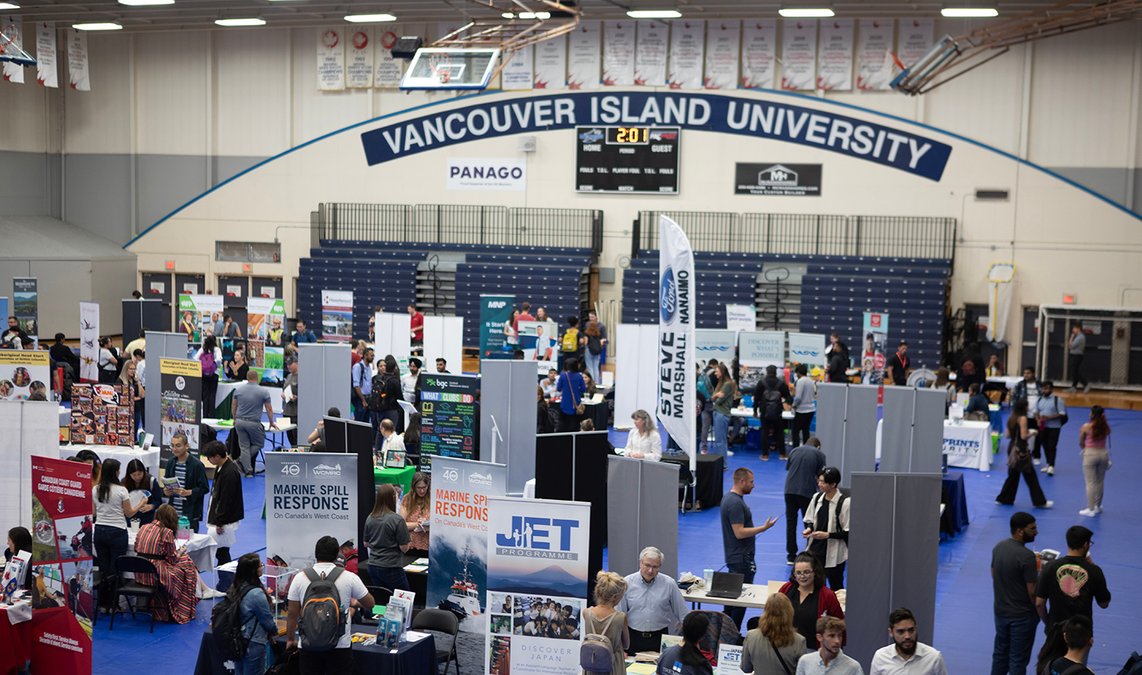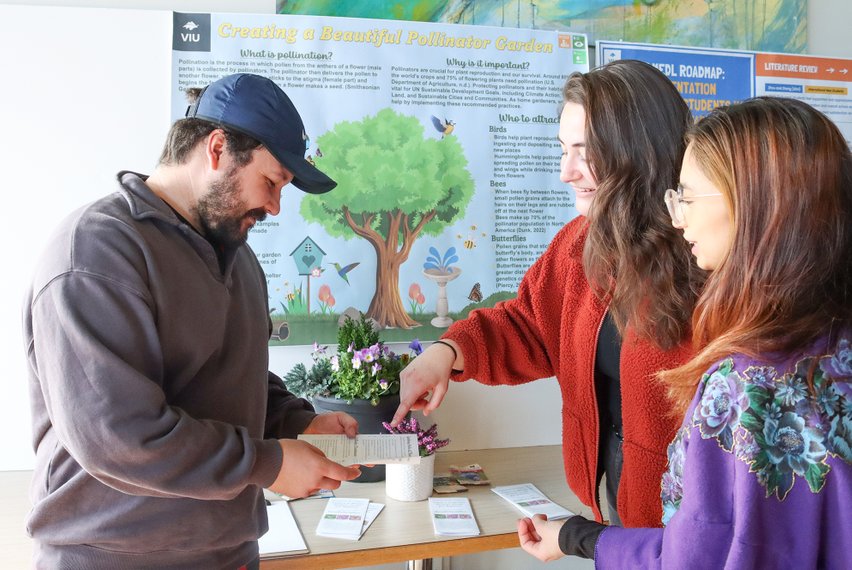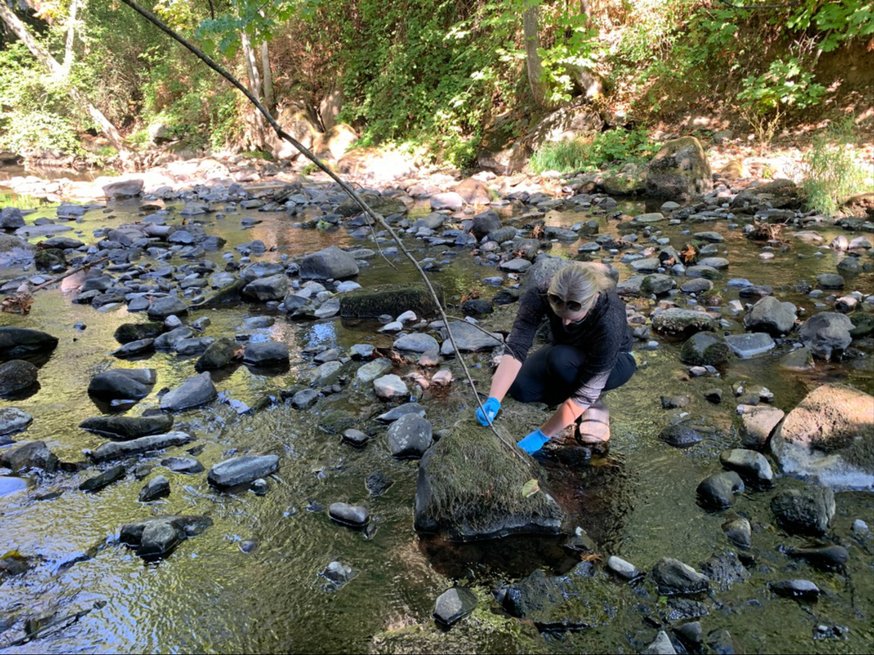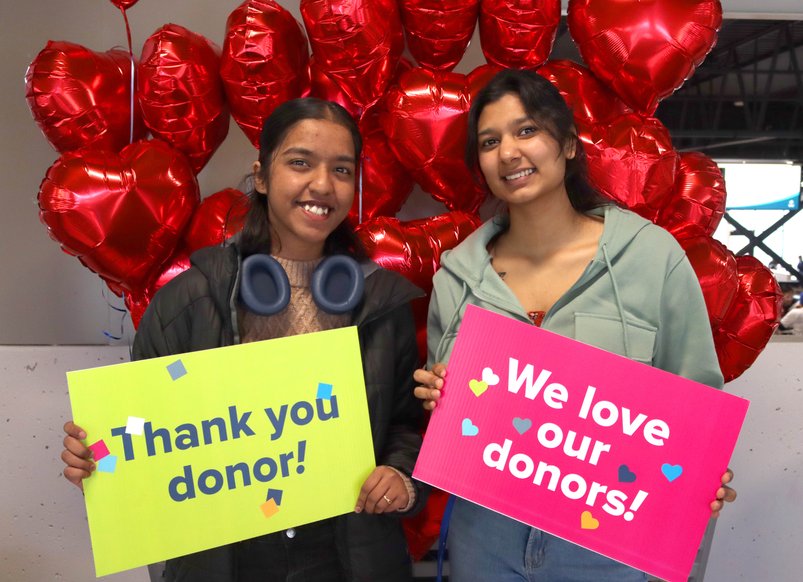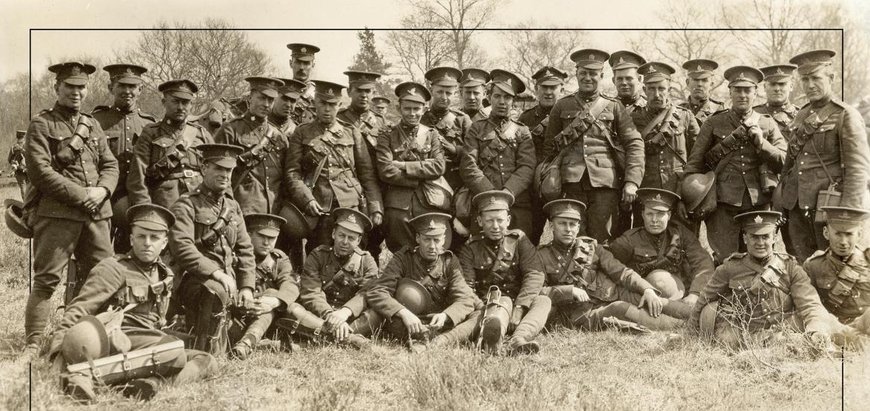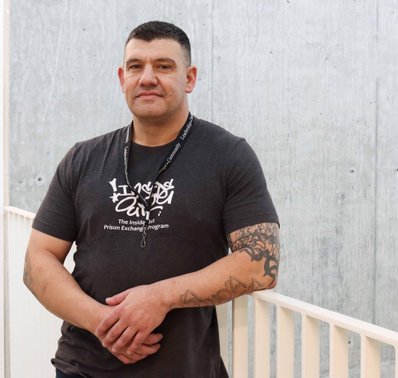VIU welcomes public to campus for career fair
What: VIU Career Fair, hosted by the Career Studio
When: Friday, April 26, 2024, 11 am to 3 pm
Where: VIU gymnasium (Building 190). See Nanaimo campus map
High school students, alumni and members of the public are invited to come to a large career fair on Vancouver Island University’s (VIU’s) Nanaimo campus on April 26.
VIU’s Career Studio is hosting the event, which features more than 40 businesses and organizations ranging from government and health care to banking and construction industries. View the full list on the event page.
“This is your chance to learn about a range of employment and volunteer opportunities in our region and beyond as well as VIU programs that can help you realize your career aspirations,” said Jonah Ferguson, Student and Employer Engagement Coordinator with the Career Studio. “We’re still accepting more employer participants. If you’re looking for local talent to fill your positions, this is a good place to be.”
The Career Studio supports VIU students and alumni with the job-seeking process, from developing resumés and cover letters to preparing for interviews and exploring potential careers. This is the second career fair the Career Studio has organized.
“Our previous career fair in September 2023 drew in more than 650 VIU students and alumni from various programs to connect with more than 60 employers,” he said. “Participating employers estimated that more than 70 hires were made as a result of the event.”
Parking is free for the duration of the event, but registration is required. If you have any questions about this event, you can reach out to CareerStudio@viu.ca.
Permalink: https://news.viu.ca/viu-welcomes-public-campus-career-fair
Brain research connects to drug addiction
Dr. Ali Rezai is a neuroscience pioneer at the Rockefeller Neuroscience Institute at VWU, who has developed treatments for Parkinson's and other brain disorders like Alzheimer’s and dementia, which led to other discoveries, including the connection between brain function and drug addiction. Dr. Rezai has spent 25 years exploring this frontier of medicine and his surgical techniques and therapies are in use around the world. That includes revolutionary treatments for a brain disease suffered by 24 million Americans – drug addiction. The results so far have been life changing.
Here’s the link to the 60 Minutes report. Go to 14:30 mark of the video HERE.
If you can’t view the video, following is a condensed transcript of the section on addiction from the 60 Minutes report. Sharyn Alfonsi is the 60 Minutes interviewer.
The human brain contains 100 billion neurons. That's as many cells as there are stars across the milky way. Dr. Ali Rezai has spent 25 years exploring this frontier of medicine. The surgical techniques and therapies he pioneered are in use around the world. Dr. Rezai allowed us to see his latest research over the last year at the Institute in Morgantown, West Virginia. It includes revolutionary treatments for a brain disease suffered by 24 million Americans - drug addiction. The results so far have been life changing for people once trapped by drugs.
Gerod Buckhalter is the son of a coal miner. At 6 foot 3, he was a high school football standout who dreamed of playing wide receiver at Penn State…but after a shoulder injury, he got hooked on painkillers.
Gerod Buckhalter: Looking back, I didn't have a chance. I couldn't do anything without having that drug--um in my system. The very first time that I -- that I took that first pill, um -- I-- I knew that I wanted that feeling for the rest of my life.
Four years ago, a psychologist who'd worked with Buckhalter introduced him to Dr. Rezai, who was gearing up to perform a new kind of brain surgery to treat severe addiction.
Dr. Ali Rezai: Our protocol was people who have failed everything. Everything. Residential programs, multiple failures, detox multiple times, outpatient, inpatient, multiple overdoses.
Gerod Buckhalter: I think he classified it as-- end-stage drug user – end stage makes you think that this is the end of your life. And hearing that at the age of 34 um, it - it was crazy.
Dr. Rezai thought he might be able to adapt technology he helped develop years earlier to treat Parkinson's disease to treat people with severe addiction. We've been able to map out with neuroscience imaging there's a specific part of the brain that is electrically and chemically malfunctioning that is associated with addiction.
It's a brain disease, it's an electrical and chemical abnormality in the brain that occurs over time with recurrent use of drugs. And this can be any substance, alcohol, opioids, amphetamines, cocaine and they all are involving the same part of the brain.
Dr. Ali Rezai: Parkinson's we implant that in the movement part of the brain that is electrically malfunctioning causing shaking. In this case, we're going in the behavioral regulation, anxiety, and craving parts of the brain.
People maybe 50 years ago, they say "A implant in the heart sounds creepy." Now it's, like, normal. Twenty-five years ago, people are saying, "What are you doing? You're putting an implant in the brain for Parkinson's?" but now it's routine part of standard of care for advanced Parkinson's.
Dr. Rezai opened a nickel-sized hole in Burkhalter's skull. Then he directed a thin wire with four electrodes deep inside. Gerod was awake during the surgery.
To map the brain we have tiny microphones the size of a hair we put inside the brain. And they're going slowly with micro-robots. They go at increments of a thousandth of a millimetre. Very slow, we drive them into the brain, and we're listening to the neurons talking to each other. In addiction, we want to find the area in the reward center, so that confirms where we are in the brain. Once we listen, we say, "Okay, that's the right sound," then we put the final therapeutic pacemaker.
Gerod Buckhalter: When they turned them on it was an immediate change. Just felt better. You know, just felt like I did prior to ever using drugs, but a little bit better. And it was at that point that I knew that I was gonna have a legitimate shot at doing well.
In all – four patients with severe drug addiction had the implant surgery. One had a minor relapse. Another dropped out of the trial completely. But two have been drug free since their operations, including Gerod Buckhalter, who’s been clean for four years.
The surgery was a success but opening someone's skull is always risky. Dr. Rezai thought he could reach more patients quickly if he used ultrasound. He was already using it to treat other brain disorders…and was convinced focused ultrasound could target the same area of the brain as the implant. So there's no skin cutting. There's no opening the skull. So it is brain surgery without cutting the skin, indeed.
Dr. Ali Rezai: So the area that we're treating is the reward center in the brain, which is the nucleus accumbens, which is right down at the base of this dark area. And then we deliver-- ultrasound waves to that specific part of the brain, and we watch how acutely, on the table your cravings and your anxiety changes in response to ultrasound. Ultrasound energy is changing the electrical and chemical milieu, or activity, in this structure in the brain involving addiction and cravings.
At this point, it seems like the brain is being reset, or rebooting of the brain, and the cravings are less, they are managed, anxiety is better. So now that allows them to interact with the therapist. It's very important to know that this is not a cure, but an augmentation of the therapy by reducing the cravings and anxiety that's so overwhelming that the therapist has difficulty working with the patient.
Sharyn Alfonsi: Then they can walk away after this? There's no--
Dr. Ali Rezai: They get off the table and go home.
Sharyn Alfonsi: And how long does this entire procedure take?
Dr. Ali Rezai: One hour.
Dr. Ali Rezai is trying the same ultrasound therapy on 45 more addiction patients and is already thinking about expanding the use of ultrasound to help people with other brain disorders including post traumatic stress disorder and obesity.
Produced by Guy Campanile and Lucy Hatcher. Broadcast associate, Erin DuCharme. Edited by Jorge J. García.
VIU CREATE Conference – a celebration of student scholarship, research and creative activity
More than 350 Vancouver Island University (VIU) students are presenting during CREATE 2024.
The annual conference aims to recognize and celebrate student scholarship, research and creative activity and provide them an opportunity to share their work and get feedback. This year’s conference runs from April 8 to 12 at various locations on the Nanaimo campus.
“CREATE is VIU’s largest student knowledge-sharing event, and we are always very excited to learn about all the amazing things VIU students are working on,” said Vanessa Moraes, Student Research Engagement Co-ordinator for VIU’s Scholarships, Research and Creative Activity office.
“The most common themes for CREATE 2024 are health, resilience and well-being, and equity, diversity and social justice. We are preparing to showcase more than 200 student projects, including posters, oral presentations, shorts, podcasts, photography and more. From academic to creative activities, there is space for everybody at CREATE, and we look forward to welcoming the community to be part of this year’s celebration of student research and creativity!”
Highlights of the conference that are open to the public include:
- Research and infographic poster sessions in the Upper Cafeteria (Building 300) from April 8 to 11, 9 am to 5 pm.
- Opening ceremony and keynote address on April 8 at 1 pm, featuring Hayden Lansdell, Assistant Deputy Minister of the BC Data Service and Government’s Director of Statistics.
- CREATE Short Films event on April 8, from 5 to 6:30 pm, at the Malaspina Theatre (Building 310). The event features 10 short films produced by VIU students. At 7 pm, the Inclusive Theatre Collective (Hooray!) – ITCH, presents an original play by student Ceridwen Nord. Medieval Madnessis a farcical murder mystery starring a diverse group of VIU students as cast and crew.
• Project Pitch is April 9 from 2 to 4 pm in the Royal Arbutus Room (Building 300). Students will pitch their ideas for a chance to receive a $3,000 grant for their project. - Graduate students will compete during the 3 Minute Thesis on April 10 from 5 to 7 pm in the Royal Arbutus Room (Building 300). The winner will represent VIU at Western regionals.
- Creative Writing students read their poetry during Spoken Work on April 11 in the Madrona Room in the VIU Library (Building 305).
CREATE 2024 is sponsored by Coastal Community Credit Union. Learn more about CREATE.
BCCF Biologist Ally Badge collects water samples from Millstone River.
BC Conservation Foundation photo
VIU researchers investigating origins
of toxic tire chemical that can kill salmon
As rain and atmospheric rivers fall on Vancouver Island the seasonal weather also brings the possibility of a toxic chemical entering urban streams from nearby roadways.
Vehicle tires release a chemical known as 6PPD-quinone that is acutely toxic to salmon at extremely low levels. This chemical can flow into storm drains and urban streams when it rains. Researchers at Vancouver Island University (VIU), in collaboration with the BC Conservation Foundation (BCCF), are studying the issue.
“Even tiny concentrations can result in fish kills,” said Dr. Erik Krogh, Co-Director of VIU’s Applied Environmental Research Laboratories (AERL).
The research lab is undertaking a large-scale study of when and where the tire wear toxin is occurring in waterways on Vancouver Island. The project currently involves a network of 31 local groups, citizen scientists and First Nations sampling 53 waterways at 99 locations between Victoria and Campbell River.
“Working alongside local First Nations and citizen scientists has allowed for this sampling program to have a greater reach and allowed us to scale up sampling efforts significantly more than what would be possible with the BCCF and VIU team alone,” said Haley Tomlin, BCCF Biologist.
The researchers are working to identify important roadway runoff and stormwater inputs of 6PPD-quinone to understand how the concentration of these toxins change over time and space. There is much to learn about these tire wear toxins. Once researchers have identified significant sources they will work with local and regional governments to advise on remediation efforts. The team will work with collaborators to evaluate nature-based solutions such as rain gardens and bio-retention ponds.
Graduate students Joseph Monaghan and Angelina Jaeger, working with Drs. Krogh and Chris Gill (Co-Directors of the AERL), developed an innovative measuring method at VIU with the support of the Natural Science and Engineering Research Council of Canada. This project wouldn’t be possible without this method, which allows the researchers to measure up to 100 samples per day.
“I feel lucky to have joined the AERL to work on this challenging problem. Measuring at the parts per trillion level usually requires hours of sample preparation and costly analysis. With our method, we can measure directly from stream water samples,” said Jaeger, adding that the AERL lab can provide results within 24 hours of collection.
Krogh said VIU’s method is significantly faster and more cost-effective than conventional methods. It allows for much greater numbers of samples to be analyzed and the faster turnaround improves engagement with project partners. Ultimately, this project will enable better decisions about stormwater management and help protect salmon habitat on Vancouver Island and beyond.
“This project involves many volunteers who are willing to go out in the rain to collect samples,” said Krogh. “None of us could do this work in isolation. It’s a team effort.”
Streamkeeper and stewardship groups, government and Indigenous partners are working together to identify which areas are impacted by the tire toxin. Krogh said local knowledge is important to figure out when and where to sample. These types of local groups may have observed impacts and can provide important historical knowledge about current and past fish populations.
Project partners, VIU and the BCCF, received $2.3 million in funding from the British Columbia Salmon Restoration and Innovation Fund.
VIU and BCCF are hosting a workshop for project partners, the general public, and leading scientists on April 29 and 30. Register for the workshop and learn more about the research project.
Students Anushka Kamble, left, and Mansi Sharma, right, celebrate Giving Tuesday at VIU.
Vancouver Island University photo
VIU Foundation’s Giving Tuesday campaign
raises more than $350,000 for students
By Jenn McGarrigle,
Vancouver Island University
23-12-01 – Vancouver Island University students have more access to scholarships, awards and bursaries following the university’s annual Giving Tuesday campaign.
The campaign saw the community support students, raising more than $350,000 for scholarships, bursaries, awards and special initiatives with all proceeds supporting students. A record-breaking number of new donors were first-time contributors.
“We are grateful to both our longtime and new donors for the support for students in need,” said Richard Horbachewski, VIU Chief Advancement Officer and Executive Director of the VIU Foundation. “Every day, our students inspire us with their passion, drive and commitment to shaping a brighter tomorrow. However, many face financial barriers that hinder their journey to success. The support not only gives students a financial boost; it also lifts spirits, showing students there is a community who cares about their success.”
Giving Tuesday is a global movement to encourage people to support causes meaningful to them during a season that is heavy on holiday sales and consumerism. Every year, the VIU Foundation selects initiatives to focus its fundraising efforts on. This year, the foundation highlighted the VIU Access Fund, which can quickly assist students in financial distress who are at risk of having to pause their studies. The Spotlight Series profiled special projects to enhance student learning and success.
“Giving Tuesday at VIU isn’t merely about making a donation; it’s an investment in the leaders, innovators and change-makers of the future. It’s a testament to the community’s belief in our students’ potential,” said Horbachewski. “Our heartfelt appreciation goes to VIU alumni and employees, local businesses and caring community members for supporting a wide range of initiatives and scholarships. Every single donation makes a difference for students.”
Walk down an illuminated path during Milner Christmas Magic
Milner Gardens & Woodland Photo
Visitors can stroll through
the dazzling lights during Milner Christmas Magic
Make memories with family and friends this holiday season during Milner Christmas Magic – the annual festive light display.
“We’re heartened by the fact that this event has become a staple in so many families’ holiday traditions, so we are pleased to be bringing it back with more lights than ever before. If visiting Milner Christmas Magic is not part of your annual traditions yet, it’s never too late to start a new one,” said Emily Weeks, Operations Coordinator for Milner Gardens & Woodland.
There’s even more cause for celebration this year, as it marks the 20th anniversary of the event. A selection of gifts is available at the Gingerbread Gift Shop and visitors can enjoy hot food and beverages in front of Milner House. Visitors can also buy a pair of Holiday Specs (holographic light glasses) to transform their experience. Don’t forget to stop by and say hello to Santa and Mrs. Claus.
Milner Christmas Magic runs from December 1 to 3, 8 to 10, and 15 to 20 from 5 to 8 pm, with viewing up until 8:30 pm. Admission is by a suggested donation of $8 for adults, $4 for children and $20 for a household, or give what you can.
“While this event is a major annual fundraiser for us, accessibility is at the forefront. This is why it has consistently been admission by voluntary donation,” said Weeks.
Thank you to all the volunteers who donated their time and energy to make this happen and to the generosity of the sponsors. Milner Christmas Magic’s presenting sponsor is Windsor Plywood. Other sponsors include:
- Coastal Community Credit Union,
- Ian Lindsay & Associates, RE/MAX of Nanaimo,
- MacLean Pazicka Souchuck – Chartered Professional Accountants, and
- Quality Foods.
Please check Milner Garden’s website before your arrival to confirm the hours of the event. Inclement weather may cause cancellations.
Visitors walk down an illuminated path during Milner Christmas Magic 2022. Photo Credit: Milner Gardens & Woodland Photo
VIU video project acknowledges Nanaimo soldiers’ contributions to the First and Second World Wars.
23-11-01 – A Vancouver Island University (VIU) video memorial project that tells the story of Nanaimo soldiers who made the ultimate sacrifice during the First and Second World Wars will be displayed across the city.
For the 11 days leading up to Remembrance Day, the Nanaimo Remembers project will display the names of more than 200 soldiers in prominent locations across the city. Stories like Private William Armstrong Syer, a miner and resident of Franklyn Street, who served in the 143rd Battalion. He was 34 when he died from wounds received in battle in August 1918 and is buried in the Crouy British Cemetery in Somme, France.
The names have been obtained from the Dallas Square Cenotaph in downtown Nanaimo and a special section highlights the contributions of local Indigenous soldiers, thanks to research conducted by VIU Elder-in-Residence Geraldine Manson.
The project, which launched in 2018, was spearheaded by VIU’s Strategic Communications and Brand and Marketing teams in collaboration with the Canadian Letters and Images Project (CLIP) and Nanaimo Community Archives. Nanaimo Remembers grew out of a desire to localize a project VIU participated in for many years – The World Remembers, a display tribute to soldiers across the world who lost their lives in the Great War.
“Nanaimo Remembers brings to life the soldiers who sacrificed their lives for our freedom,” said Dr. Stephen Davies, Director of VIU’s Canadian Letters and Images Project. “The project shares details of each soldier’s life, revealing the people behind those names on the cenotaph. You get a deeper sense of what remembrance means.”
Information shared about each soldier, where available, includes their name, rank and battalion, when they died and at what age, where they were buried, their occupation and their connection to Nanaimo.
The video presentation will run continuously from November 1 to 11, 2023, on the large screen in the Welcome Centre (Building 300 at VIU’s Nanaimo campus). It will also be played on screens at several locations in the community on varying dates:
- City of Nanaimo: Beban Park and Oliver Woods Community Centre (November 6 to 11)
- Port Theatre
- Nanaimo Museum (November 1 to 10, museum is closed November 5,6 and 11)
- Vancouver Island Regional Library: Nanaimo North branch
- School District 68
- Rogers tv (starting Sunday, November 5)
Check out the project at one of the participating locations above or visit VIU’s YouTube channel.
VIU's board of governors falls short in
oversight of cybersecurity risk management
23-08-01 – The Vancouver Island University board of governors needs to improve its oversight of the university's cybersecurity risk management practices, says a new independent audit report from the Office of the Auditor General.
The audit found deficiencies in the board's training, and their oversight of policy and strategies that are critical to protecting VIU's information systems and data.
"Cyber attacks are common and they're evolving," Auditor General Michael Pickup said. "B.C. university boards, including the VIU board, play a critical role in ensuring management is protecting their institutions from the rise of ransomware and other cyber threats."
University boards oversee cybersecurity risk management by holding university management accountable for identifying and mitigating risks.
The Office of the Auditor General found the VIU board has defined roles and responsibilities for risk management, and it sets expectations of VIU's management. However, the audit found three areas where the board has not provided oversight of VIU's cybersecurity risk management practices:
* First, the board has not adequately overseen the university's risk mitigation strategies. "Last year the VIU board only did a review at the end of the year. It should be done throughout the year - especially in a field that changes as quickly as information technology," Pickup said.
* Second, the VIU board lacks training in cybersecurity risk management. VIU board members should receive cybersecurity risk management training when they join the board, and then annually.
* Third, the VIU board had not approved an updated risk management policy in over 10 years. "Outdated policies become ineffective and weaken accountability," Pickup said.
The VIU board has accepted the report's four recommendations focused on cybersecurity risk mitigation and responses, board training and development, and keeping policies updated.
"I'm pleased that the VIU board has committed to acting on our recommendations and I hope other university boards can learn from our report," Pickup said.
VIU stores the personal information of 12,000 students and 1,500 faculty and staff who are located at its campuses in Nanaimo, Duncan, Parksville and Powell River. The 15-member board includes: eight members appointed by government; five members elected by faculty, staff and students; the university chancellor; and the university president.
The National Cyber Threat Assessment, issued by the Canadian Centre for Cyber Security, says ransomware is a persistent threat, and Canada's critical infrastructure is increasingly at risk from cyber threats.
Related links:
Board Oversight of Cybersecurity Risk Management at Vancouver Island University
Report: https://www.oag.bc.ca/pubs/2023/board-oversight-cybersecurity-risk-management-vancouver-island-university (https://can01.safelinks.protection.outlook.com/?url=https%3A%2F%2Fwww.oag.bc.ca%2Fpubs%2F2023%2Fboard-oversight-cybersecurity-risk-management-vancouver-island-university&data=05%7C01%7CGrant.Kerr%40gov.bc.ca%7C2b5a5f778dbe49f1877d08db92a990c9%7C6fdb52003d0d4a8ab036d3685e359adc%7C0%7C0%7C638265029330117979%7CUnknown%7CTWFpbGZsb3d8eyJWIjoiMC4wLjAwMDAiLCJQIjoiV2luMzIiLCJBTiI6Ik1haWwiLCJXVCI6Mn0%3D%7C3000%7C%7C%7C&sdata=zKeR%2Ffz21tMB%2Fn%2FewvyYUppGBEQIP4LqAlkZWCV6LIA%3D&reserved=0)
Audit at a glance: https://www.oag.bc.ca/sites/default/files/publications/audits-at-a-glance/OAGBC-Oversight-Cybersecurity-VIU-AAAG-August-2023.pdf(https://can01.safelinks.protection.outlook.com/?url=https%3A%2F%2Fwww.oag.bc.ca%2Fsites%2Fdefault%2Ffiles%2Fpublications%2Faudits-at-a-glance%2FOAGBC-Oversight-Cybersecurity-VIU-AAAG-August-2023.pdf&data=05%7C01%7CGrant.Kerr%40gov.bc.ca%7C2b5a5f778dbe49f1877d08db92a990c9%7C6fdb52003d0d4a8ab036d3685e359adc%7C0%7C0%7C638265029330117979%7CUnknown%7CTWFpbGZsb3d8eyJWIjoiMC4wLjAwMDAiLCJQIjoiV2luMzIiLCJBTiI6Ik1haWwiLCJXVCI6Mn0%3D%7C3000%7C%7C%7C&sdata=bDeQRJ3%2BotC38c602nVGKFF31zYIyT5mbqwchXNymqI%3D&reserved=0)
Video: https://www.youtube.com/watch?v=X1_XEgbiN5U (https://can01.safelinks.protection.outlook.com/?url=https%3A%2F%2Fwww.youtube.com%2Fwatch%3Fv%3DX1_XEgbiN5U&data=05%7C01%7CGrant.Kerr%40gov.bc.ca%7C2b5a5f778dbe49f1877d08db92a990c9%7C6fdb52003d0d4a8ab036d3685e359adc%7C0%7C0%7C638265029330117979%7CUnknown%7CTWFpbGZsb3d8eyJWIjoiMC4wLjAwMDAiLCJQIjoiV2luMzIiLCJBTiI6Ik1haWwiLCJXVCI6Mn0%3D%7C3000%7C%7C%7C&sdata=ySndCopFLNsIw8w68BgxSjMeR7q2BataGnHYhmeT6zo%3D&reserved=0)
Markus Batraki, an Inside-Out program alum, is one of many students who have had their lives transformed by this innovative course. Vancouver Island University photo
Northpine Foundation donates more than
$1 million to VIU
A program on Vancouver Island that allows university students to learn alongside incarcerated people in provincial correctional centres will expand, thanks to a $1.1-million gift from the Northpine Foundation.
This generous gift will expand Vancouver Island University’s (VIU’s) Inside-Out Prison Exchange Program to other BC communities. It will also support formerly incarcerated persons pursuing post-secondary studies and enable the development of employment training at the Nanaimo Correctional Centre (NCC).
The Inside-Out program offers post-secondary criminology courses to classes composed of both incarcerated students (“inside” students) and university students (“outside” students). The course is taught within the correctional centre and offers students a powerful academic and experiential learning opportunity that puts a face and voice behind what it means to be involved in the justice system in a way that fosters mutual understanding, compassion and shared experiences.
“The Inside-Out program has had a tremendous impact on my life,” said former inside student Markus, who is now enrolled full-time at VIU and plans to pursue a Bachelor of Arts degree. “Through the program and the connections made with others, I have come to believe in my ability to become a university student. I now understand that even though I have spent time in prison, I can overcome past adversity and tackle new goals in life with hard work and perseverance.”
VIU began offering Inside-Out classes at the Nanaimo Correctional Centre in 2016. Three years later the program expanded to the Vancouver Island Regional Correctional Centre in Victoria. More than 250 students have taken the course, including 118 inside students.
“I’ve had the privilege of observing enormous growth in participants’ compassion and mutual respect for each other,” said Criminology Professor Dr. Elizabeth McLin. “They learn that we have much more in common than we ever thought, recognizing our shared humanity. And, once that happens, all those assumptions we’ve held about each other cease to wield power over how we view others – and that change transcends the classroom.”
Over the next three years, VIU will assist with the startup of programs with other universities in the province. The funding also allows VIU and NCC to collaborate with a local non-profit on more employment training for NCC residents and supports for Inside-Out alumni as they continue their educational journeys.
“At VIU, success is determined by how wide we can open our doors to allow as many people as possible to access life-changing educational experiences,” said Dr. Deborah Saucier, VIU President and Vice-Chancellor. “This program has enabled inside students to see a different path forward for themselves. The program breaks down stereotypes, creating kinder, more compassionate human beings. This partnership with the Northpine Foundation will offer fresh perspectives and help create a deep connection to communities our students serve.”
“Over the past seven years during which the Inside-Out program has been offered at NCC, I have witnessed the participants grow in so many meaningful ways,” said Teri DuTemple, Warden at the Nanaimo Correctional Centre. “Both inside and outside students are allowing themselves to be vulnerable, to consider the perspectives of others, to show empathy, and in some cases develop a sense of passion for creating positive change to address social issues. I have been inspired at each graduation upon hearing the stories of the graduates as to how life-changing their participation in the course has been. I am incredibly proud of our partnership with VIU and look forward to many more years of Inside-Out graduations.”
The Northpine Foundation invests in innovative projects for underserved and underinvested communities in Canada. Through risk capital through a mix of grants, donations, loans, equity investments, or a hybrid of all these, they aim to catalyze scalable outcomes for these communities. Northpine will also provide expertise, networking and other non-financial supports to the Inside-Out program at VIU and the employment training at NCC.
“Incarcerated people have limited access to post-secondary education, and what’s available is often prohibitively expensive,” said Sara Tessier, Impact Manager for Formerly Incarcerated Persons at the Northpine Foundation. “Our investment in the Inside-Out program will help remove some of the barriers to gainful employment by opening access to career-focused education, reducing recidivism in the process. We hope this investment will prove the value of VIU’s model, boosting possibilities for scaling and expanding to serve communities across Canada.”
VIU accepts return of Honorary Doctorate
of Laws from Mary-Ellen Turpel-Lafond
Vancouver Island University has accepted the return of an Honorary Doctorate of Laws given to Mary Ellen Turpel-Lafond in 2013.
Turpel-Lafond informed VIU of her decision to voluntarily return the honour after receiving correspondence from the university that it would be moving forward with a process regarding her honorary doctorate. VIU initiated this process following requests from members of the VIU community and calls from the Indigenous Women’s Collective to review Turpel-Lafond’s continued eligibility to hold VIU’s highest honour. As this matter is now concluded, VIU will not provide further comment on Turpel-Lafond’s specific case.
More broadly, VIU condemns Indigenous identity fraud and will continue the consultation process that is currently underway to develop and implement an Indigenous Identity Policy. VIU will also be reviewing its policy and procedure for nominating, awarding and rescinding honorary doctorates.
“False claims of Indigenous ancestry cause harm to Indigenous peoples,” said Dr. Deborah Saucier, VIU President and Vice-chancellor. “This is why VIU’s future policy on Indigenous identity will honour the contributions of Indigenous students, faculty, staff and community leaders and will include safeguards to confirm Indigenous identity going forward.”
Dr. Kyle Duncan has an NSERC Discovery Grant of $125,000 over five years to pursue his research. VIU Photo
VIU Chemistry Professor gets grant to help develop new mass spectrometry imaging technology
23/01/04 – Vancouver Island University Chemistry Professor Dr. Kyle Duncan is developing mass spectrometry technology that could help discover new treatment options for cancer.
Dr. Duncan is building custom mass spectrometry imaging technology to help get a more accurate picture of metabolites in tissue. Metabolites are small molecules that control the metabolism of our cells. Changes in the presence or number of certain metabolites in specific regions of tissue can result in disorders or be a sign of serious and chronic diseases such as diabetes or cancer.
Current methods to examine tissue metabolites require cutting out specific regions for analysis by a mass spectrometer, but this means information from the adjacent cells is lost. Duncan’s method is to image metabolites directly in specific regions of tissue, which gives a more accurate and detailed picture. To apply this technology, he is currently collaborating with other members of MetaboBC to help understand how metabolites are distributed in healthy and cancerous tissue with the aim of discovering potential treatment options to disrupt cancer growth and progression.
Duncan received a Natural Sciences and Engineering Research Council of Canada (NSERC) Discovery Grant of $125,000 over five years to pursue his research. He also received a Discovery Launch Supplement, a grant for early career researchers, of $12,500.
“Our body’s metabolic processes are highly dynamic and can compensate or react to changing conditions at the molecular level, creating a moving puzzle with many intricate pieces,” said Duncan. “The fundamental research enabled by this grant allows me to pursue my passion – exploring this boundary between chemistry and biology.”
Duncan’s state-of-the-art technology provides images similar to those a camera produces. A camera has a combination of red, green and blue pixels to create the image. Instead of colours in each pixel, mass spectrometry image pixels provide a simultaneous snapshot of different metabolites in tissue, anywhere from one to thousands. This more detailed picture will allow scientists to determine if metabolites are higher in particular regions of tissue, and if so, why.
https://news.viu.ca/viu-researcher-aims-build-new-tool-map-molecules-tissue



